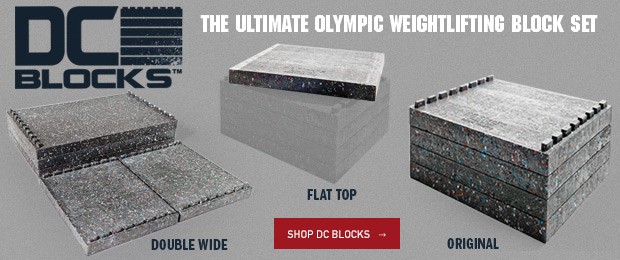
We’ve all been told that in order to find true happiness we need to follow our passion. Unfortunately, few people go into any specific detail about what the word "follow" really entails. With all of our basic needs met and easily available to us, people move up Maslow’s hierarchy and seek meaning, to have an impact on the world around them. For many people who are passionate about health and fitness, the idea of opening a gym is a very enticing one. But how do you know if that is the right move to make? Here are four clues that can help give you some guidance towards answering that question:
1. Is there a problem you are very passionate about solving?
All of these points can be applied to opening any business, but for now we’ll stick with the gym business model as our example. If you are planning on opening up a gym, you need to be doing so with the purpose of solving a specific problem. This problem can be a simple or complex one but you must have a definitive purpose to answer your reason of “why.” Gyms are a dime a dozen, and are opening and closing on every street corner. If there isn’t something that separates you from every other facility out there, you will not succeed. You need to make sure that the problem you perceive is an actual current problem for consumers. Building your “ideal” gym may only appeal to you. You must build a gym that meets a need of enough viable customers to keep your gym profitable.
RECENT: Chase the Pain for New Levels of Muscle Growth
The second part of this is that you must be very passionate about solving this problem. You will know that you are passionate about this problem when it is all-consuming. If it is all you think about and starts to take up a significant portion of your time and energy then you know that you have the right level of passion to take a step forward. This is the passion you will need to continually develop a better and better customer experience. If you don’t have this level of passion, you will give up too quickly and will not be willing to work through the tough times.
2. Do you have hyperfocus?
When you open a business you are signing a blank check for your time. This means at any hour of the day, any day of the year, you need to be willing and available to problem solve. Throughout your gym’s lifetime, you will need to be able to focus all of your attention on a certain problem that you need to solve. Sometimes these are good problems (like what systems you need to manage doubling your membership) and sometimes they are bad problems (like how you handle an employee who you caught stealing). Either way, you will need to be able to put in some serious hours focusing on the problem. I have found that running a business involves fluctuating periods of low workload and stress with high workload and stress.
For example, when I first opened my gym, I worked 48 hours straight setting up our facility management software, credit card processing, and cleaning in preparation for our open house. When we moved into our new facility we had to move some equipment in on Friday, run a powerlifting meet on Saturday, install flooring Saturday night, move the rest of the equipment in on Sunday, and come back Monday to finish setting up all of our computers. The trick is to work as much as you can during the periods of low workload and stress to better prepare and prevent the periods of high workload and stress. Either way, those periods are going to come so you better have it in you to handle them.

3. Do you have an affinity for high risk?
Opening a gym is risky business. You are basically taking your own—and probably someone else’s—money and betting it on yourself, which, if you’ve never opened a gym or any business or worked in the industry for a long time, seems like a pretty stupid bet. On top of that, you will have to keep betting on yourself by reinvesting in your business with any profits that you do make. After a year and a half of being in business, I took the majority of my cash and invested in an expansion of our facility; four and a half years into the business, I took the majority of my cash and invested in moving into a bigger facility; and now six years into the business, I’m taking my cash and building an addition to our current facility. If you’re someone who is more likely to cash in your chips than to put them back on the table, owning a business is probably going to be very uncomfortable for you. The good thing is that you have a good bit of control over your investment. If you do things right then you are more likely to have success. The downside is that you don’t know what the right thing to do is, you won’t learn until you try, and there is no guarantee that you won’t fail because there is still some luck involved.
4. Do you have any roadblocks?
This is really more of a continuation of the previous point in regard to high risk. A roadblock is something that makes rolling the dice too risky. Have three high school kids in private school, college funds you’re putting into, and a nice job that helps you make the money you need to fund all that? Probably not the best time to throw a monkey wrench in the system. You need to have the relative freedom to take on not just the monetary risks but also the time constraints. Of course, there may never come an “ideal” time to do so, but you definitely need to weigh all the possibilities. I opened my gym when I was 25. The good side of that was that I was young, dumb, and didn’t have any money, so there wasn’t really any downside to screwing up. The downside is that my opening the gym kept me from doing a lot of the fun things that people in their mid-20’s get to do. I don’t regret it but hindsight gives a new look at things.
So, what were your answers to the above criteria? Think you’re up for the challenge? Let me know in the comments below.












Good stuff here, I have been in the limbo of debate for some time now of whether or not to pull the trigger on a gym down here in Texas. Like you were, I am in my mid-twenties and feel that the affinity I have for high school strength and conditioning is lacking in a true tangible format. The others that are doing it use the high schools facilities and seem to just be a cookie cutter cash cow. However good on them, the results do not seem to be overflowing from said program as one would think they should be with as much financial ability they have.
Moving into 2018 I have decided to start initially by exposing content free of charge to try and drum up interest into the dark side, if you will, of true methodical training. I currently am an offensive line coach as well as strength and conditioning coach and have my kids on a quasi conjugate template and feel that i should build first with what building blocks I have at the ready instead of jumping into a brick and mortar and not having any interest in what I am selling.
You give some great points to seriously take the time to consider and I thank you for the post!
-Cam